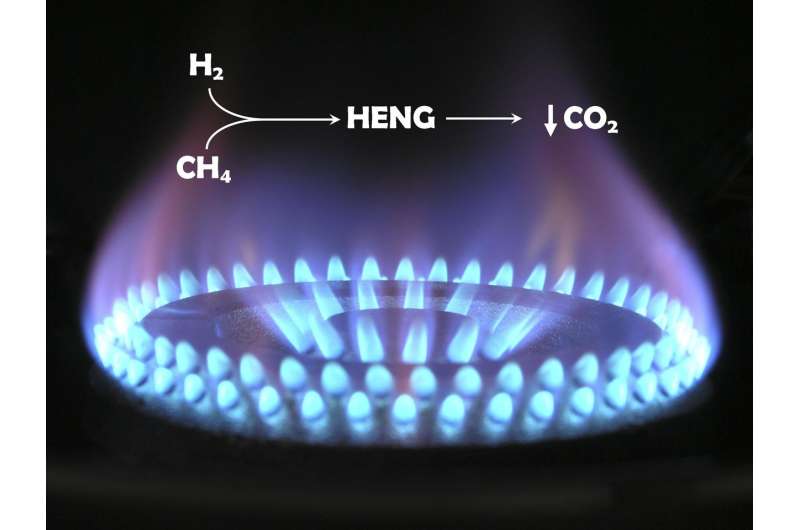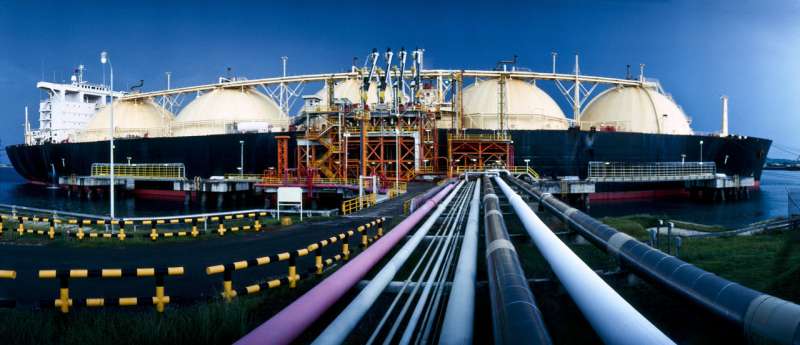H2 (hydrogen as a gas) combined with CH4 (methane) produces hydrogen-enriched natural gas (HENG). This can help lower carbon emissions (CO2). Credit: Swansea University
Almost a third of the natural gas fuelling UK homes and businesses could be replaced by hydrogen, a carbon free fuel, without requiring any changes to the nation's boilers and ovens, a pioneering study by Swansea University researchers has shown.
Over time the move could cut UK carbon dioxide emissions by up to 18%.
Natural gas is used for cooking, heating and generating electricity. Domestic gas usage accounts for 9% of UK emissions. In an effort to reduce annual carbon emissions, there is presently a concerted effort from researchers worldwide to offset our usage of natural gas.
Enriching natural gas with hydrogen is one way forward. Experiments have shown that modern-day gas appliances work safely and reliably with hydrogen-enriched natural gas as the fuel. It is already used in parts of Germany and the Netherlands, with a £600m government-backed trial in the UK taking place this year.
Natural gas naturally contains a small quantity of hydrogen, although current UK legislation restricts the allowed proportion to 0.1%.
The question the Swansea team investigated was how far they could increase the percentage of hydrogen in natural gas, before it became unsuitable as a fuel, for example because the flames became unstable.
The team, Dr. Charles Dunnill and Dr. Daniel Jones at the University's Energy Safety Research Institute (ESRI), found:
- An enrichment of around 30% is possible, when various instability phenomena are taken into account
- Higher percentages make the fuel incompatible with domestic appliances, due to hydrogen's relatively low energy content, its low density, and a high burning velocity.
- 30% enrichment by hydrogen nevertheless equates to a potential reduction of up to 18% in domestic carbon dioxide emissions;
30% of the UK's natural gas could be replaced by hydrogen, cutting carbon emissions, Swansea University researchers have shown. Credit: Swansea University
The research was published by the Royal Society of Chemistry in the Sustainable Energy & Fuels.
Dr. Charles Dunnill of the Energy Safety Research Institute at Swansea University said:
"Up to 30% of the UK's gas supply can be replaced with hydrogen, without needing to modify people's appliances.
As a low carbon domestic fuel, hydrogen-enriched natural gas can cut our greenhouse gas emissions, helping the UK meet its obligations under the 2016 Paris Climate Change Agreement.
Hydrogen-enrichment can make a difference now. But it could also prove a valuable stepping-stone towards a future, pure hydrogen, zero carbon gas network."
More information: Daniel R. Jones et al. Hydrogen-enriched natural gas as a domestic fuel: an analysis based on flash-back and blow-off limits for domestic natural gas appliances within the UK, Sustainable Energy & Fuels (2018). DOI: 10.1039/C7SE00598A
Provided by Swansea University
























